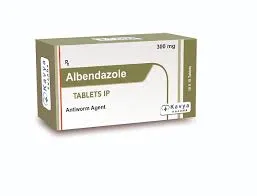- Afrikaans
- Albanian
- Amharic
- Arabic
- Armenian
- Azerbaijani
- Basque
- Belarusian
- Bengali
- Bosnian
- Bulgarian
- Catalan
- Cebuano
- Corsican
- Croatian
- Czech
- Danish
- Dutch
- English
- Esperanto
- Estonian
- Finnish
- French
- Frisian
- Galician
- Georgian
- German
- Greek
- Gujarati
- Haitian Creole
- hausa
- hawaiian
- Hebrew
- Hindi
- Miao
- Hungarian
- Icelandic
- igbo
- Indonesian
- irish
- Italian
- Japanese
- Javanese
- Kannada
- kazakh
- Khmer
- Rwandese
- Korean
- Kurdish
- Kyrgyz
- Lao
- Latin
- Latvian
- Lithuanian
- Luxembourgish
- Macedonian
- Malgashi
- Malay
- Malayalam
- Maltese
- Maori
- Marathi
- Mongolian
- Myanmar
- Nepali
- Norwegian
- Norwegian
- Occitan
- Pashto
- Persian
- Polish
- Portuguese
- Punjabi
- Romanian
- Russian
- Samoan
- Scottish Gaelic
- Serbian
- Sesotho
- Shona
- Sindhi
- Sinhala
- Slovak
- Slovenian
- Somali
- Spanish
- Sundanese
- Swahili
- Swedish
- Tagalog
- Tajik
- Tamil
- Tatar
- Telugu
- Thai
- Turkish
- Turkmen
- Ukrainian
- Urdu
- Uighur
- Uzbek
- Vietnamese
- Welsh
- Bantu
- Yiddish
- Yoruba
- Zulu
Th12 . 06, 2024 06:12 Back to list
Ivermectin Injection for Dogs Uses Dosage Safety and Side Effects Explained
Ivermectin for Dogs An Overview of Injection Use
Ivermectin is a widely recognized antiparasitic medication used in both veterinary and human medicine. Its primary purpose is to treat various parasitic infections, including heartworm, mites, and certain types of worms in dogs. The injectable form of ivermectin is particularly significant in veterinary practice, often facilitating quicker and more effective treatment in canines, especially in severe infestations.
What is Ivermectin?
Ivermectin is a member of the avermectin family of compounds, which are derived from the soil bacterium *Streptomyces avermitilis*. It works by binding to specific channels in the nervous system and muscle cells of parasites, leading to paralysis and death of the parasites. Although ivermectin is indispensable in treating various conditions, it is crucial to understand its proper application and dosage, particularly in dogs.
Uses in Veterinary Medicine
The injectable form of ivermectin is predominantly used to treat heartworm disease, caused by the *Dirofilaria immitis* parasite. Heartworm is a serious and potentially fatal condition that affects the cardiovascular system of dogs. For dogs diagnosed with heartworm, a veterinarian may administer ivermectin injections as part of a comprehensive treatment plan.
Besides heartworm, ivermectin is also effective against other parasites, such as sarcoptic mange (scabies) and ear mites
. The ability to deliver the medication through injection can be particularly advantageous in cases where dogs are uncooperative or difficult to medicate orally.ivermectin dog injection

Administration and Dosage
It is critical to follow the veterinarian’s instructions regarding the administration of ivermectin injections. Dosage will depend on the dog’s weight, health status, and the specific parasites being targeted. Veterinarians typically calculate the appropriate dosage to minimize potential risks and maximize treatment efficacy. Overdosing can lead to serious side effects, including neurological issues, so it is vital never to administer more than the prescribed amount.
Safety Considerations
While ivermectin is generally safe for use in most dogs, specific breeds, particularly herding breeds like Collies and Shetland Sheepdogs, may be genetically predisposed to adverse reactions due to a mutation in the MDR1 gene. This mutation affects the dog’s ability to metabolize certain medications, including ivermectin. Therefore, it is imperative for veterinarians to assess the risk before prescribing ivermectin injections.
Before administering any medication, it's essential that a thorough examination and diagnostic tests are conducted to ensure the dog is a suitable candidate for ivermectin therapy. This helps in preempting any potential complications or adverse reactions.
Conclusion
Ivermectin injections hold a crucial role in the treatment of various parasitic infections in dogs. Their efficacy in combating serious conditions such as heartworm disease can potentially save the lives of pets. However, responsible usage, along with a thorough veterinary consultation, is crucial to ensure safety and effectiveness. Owners should always consult with their veterinarians regarding any concerns or questions about ivermectin, ensuring their furry friends receive the best possible care. By understanding both the benefits and risks associated with this powerful medication, pet owners can make informed decisions to protect their pets from harmful parasites.
-
Guide to Oxytetracycline Injection
NewsMar.27,2025
-
Guide to Colistin Sulphate
NewsMar.27,2025
-
Gentamicin Sulfate: Uses, Price, And Key Information
NewsMar.27,2025
-
Enrofloxacin Injection: Uses, Price, And Supplier Information
NewsMar.27,2025
-
Dexamethasone Sodium Phosphate Injection: Uses, Price, And Key Information
NewsMar.27,2025
-
Albendazole Tablet: Uses, Dosage, Cost, And Key Information
NewsMar.27,2025













